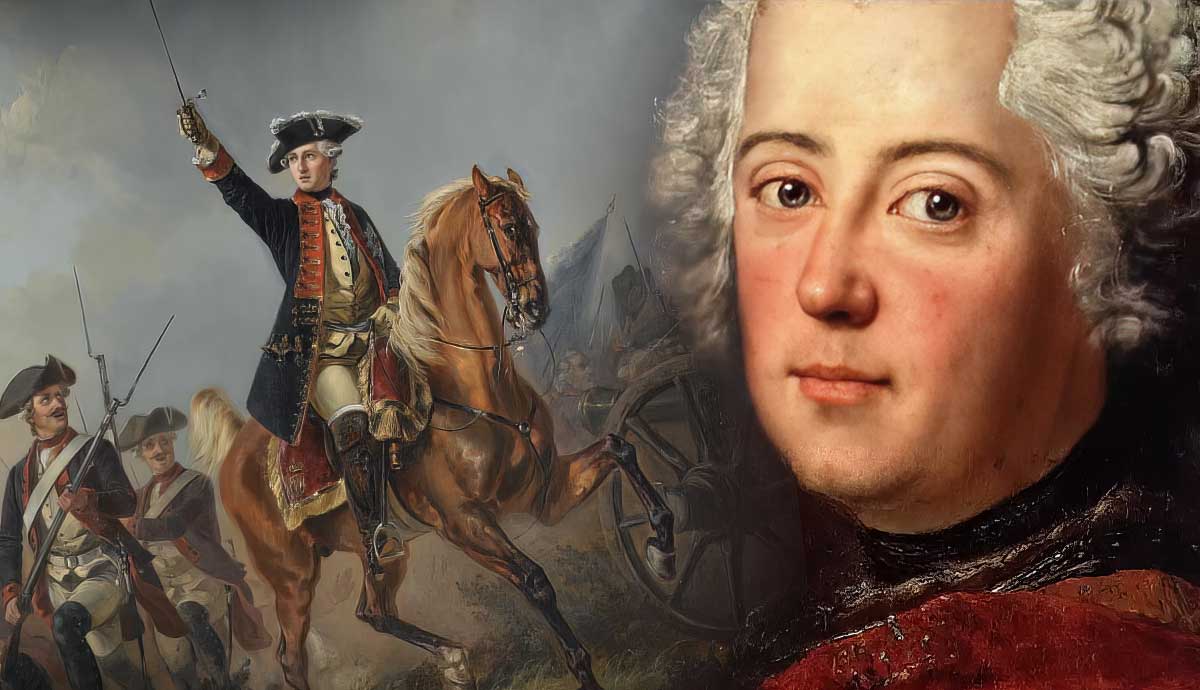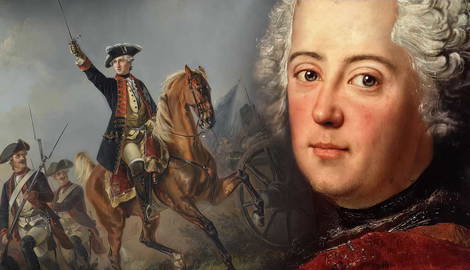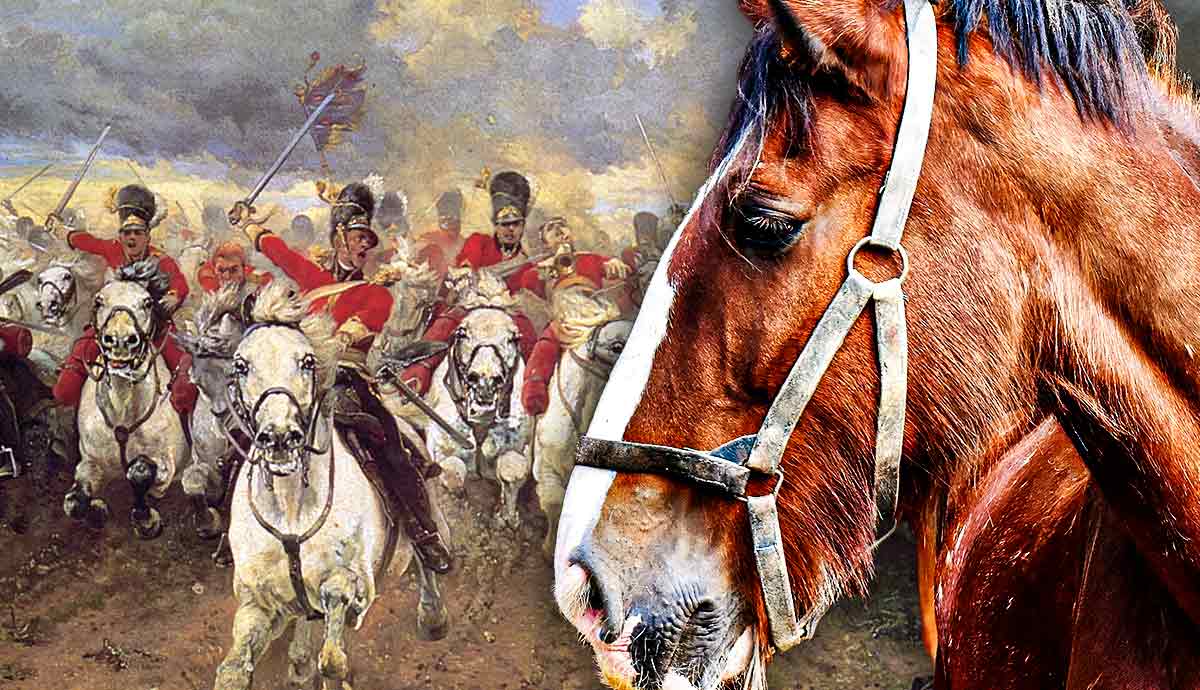
Frederick II (Frederick the Great) is primarily known as a military leader who, through his military action, overcame the Austrians, the Russians, and the French in order to solidify Prussia as a powerhouse in Europe.
What makes a nation great, however, can hardly be defined as the sole ability to win wars. Frederick the Great transformed Prussia with domestic and foreign policies, attention to trade and economics, and supported a revolution in arts and culture that turned Prussia into a nation worthy of emulation and admiration.
Frederick II’s Progressive Policies

Human rights was a cornerstone of Prussian administrative policy during the time of Frederick II. Freedom of speech and freedom of the press were important factors of this progressive outlook.
Judicial cruelty was also seen as something that needed reform. Under Frederick II, torture was made illegal, and capital punishment became reserved for only the most heinous crimes. Other dynamics within the justice system also received great attention. When Frederick II came to power, there were special courts for different social classes. He abhorred this inequality, and set about reforming the judicial system so that it was applied equally across the board.
The reforms started by the Prussian monarch, however, took a long time to enact, and were only fully completed in 1794 after his death.
The Prussian Economy & The Support of Local Industries

Frederick II inherited a country that was dominated by the rules and laws of mercantilism. The ideas were restrictive and nationalistic in practice. Mercantilism at its core relies on owning precious metals and importing more than exporting. As such, the model generated a protectionist state of affairs.
Frederick II was an avid believer in the mercantilist model, and realizing that Prussia needed to offset its import/export relationship, he made great strides in supporting local businesses that had the ability to manufacture things that would otherwise be imported. This move towards self-sufficiency created an economy that was confident in its own, national abilities.
The industries that he supported represented many businesses across a broad economic spectrum. From small crafts to heavy industry, all gained the attention of the monarch. Sugar refining, metal forging, and armaments all became important industries under the guiding hand of Frederick II. Two surprising industries that became important to the economy of Prussia were porcelain and silk.
The silk industry was of particular interest to Frederick II. He oversaw the planting of mulberry trees on which silkworms feed, and he implemented laws that protected and made sure that the silkworms were well looked after. The government was even involved in how the silk was produced and handled.
Another industry that Frederick II had a great appreciation for was the porcelain industry. The Royal Berlin Porcelain Factory was established on the order of Frederick. The porcelain created there was of an extremely high quality, and was a source of inspiration and emulation throughout Europe, and indeed, the entire world. With the attention on silk and porcelain, Frederick managed to inhibit the expensive importation of these goods which previously had to come all the way from China.

When Frederick II annexed Silesia from the Austrians, he immediately set about exploiting the territory’s great wealth in resources. Steel became a major product linked to Silesia, and with it came the armaments industry, which was vital to maintaining the power of the Prussian state. Textiles also became an important feature of Silesian industry, with a particular focus on linen.
Many industries in Prussia were subsidized and benefited from government incentives, with Frederick taking an active part in each industry, looking for ways to improve businesses and searching for new markets.
Religion Under Frederick II

During the time of Frederick II, many industries around Europe were tied to different religions. Jesuits had a reputation as good teachers, while Jews were known as being merchants and bankers, for example. Frederick understood that to build and strengthen the economy of Prussia, religious prejudice needed to be suppressed. He welcomed Protestant French Huguenots fleeing religious persecution in France and ensured that people of other cultures and religions felt welcome in Prussia.
This dynamic was certainly helped by the fact that Frederick II took a scientific approach to religion. Although having been brought up as a Calvinist, Frederick rejected many of the mystical and miraculous aspects of the Christian faith and in doing so, tempered religious fervor with a sense of tolerance for other beliefs. As an absolute monarch, he was also seen by many Prussians as a figurehead representing education and wisdom and a figure that was to be emulated throughout the nation.
Prussia, however, remained an undeniably Protestant nation, and tolerance of other religions, while immensely progressive for the time, did not extend to full equality. Catholics, for example, were not considered for high positions within the state.
Although Frederick achieved considerable successes in immigration through his policies, repeatedly stating that nationality and religion were of no concern to him, he did secretly harbor prejudices. He showed concern about there being too many Jewish people in certain regions and was known to treat Catholics harshly in conquered areas. Nevertheless, he was generally more tolerant than his peers in the rest of Europe.
Attention to the Arts

Frederick II was a great lover of the arts. He was a patron of many of the musicians and composers of the day, including J.S. Bach. He even composed his own sonatas and played the flute. His love of classical arts extended to opera, which he sought to make more accessible to the general public by making admission to operas free of charge. During his reign, Frederick built many opera houses across Prussia.
His interests also included philosophy, and he regularly corresponded with Voltaire, who referred to Frederick as a “philosopher-king.” Frederick didn’t just attend to the philosophy of others, however. He wrote his own work under the title of The Works of a Sans-Souci Philosopher.
Much of Frederick’s education was conducted in French, which made him tend to be somewhat of a Francophile. Although he had a distaste for the opulence displayed by the French nobility, he did have a love for the aesthetic and feel of French arts and culture.
With his love of arts and culture also extending to paintings and sculpture, Frederick sought to turn Berlin into a cultural center that could rival Paris and London.
Rural Reforms

While great attention was given to urban issues, Frederick understood that the agricultural sector also had to be vastly improved. His Peuplierungspolitik (peopling policy) saw vast improvements and expansion in agriculture with the draining of swamps and the opening up of new land for farm use.
He introduced new crops to Prussia, including potatoes and turnips. The potato was highly successful and transformed agriculture in Prussia. As a result, Frederick II was nicknamed “The Potato King,” and every year to this day, potatoes are laid on his grave. He also expanded the infrastructure, building canals to transport crops to market.

During his tenure as king of Prussia, over 1,200 villages were founded, and many thousands of jobs were created in the farming sector. Although his policies saw the devastation of ecosystems, for a man of his time, his enlightened pragmatism was far more progressive than many of his peers. He enacted laws to protect plants, and his fondness for animals saw him open Prussia’s first veterinary hospital. He held the philosophy that people who did not care for animals would likely not be loyal to their human comrades either. He refused to wear spurs while riding his horse, and while writing to his sister, Wilhelmina, about the treatment of animals and how it affected human nature, he stated that it was “better to be more sensitive than too harsh.”

Through military might, Frederick II acquired new lands and secured Prussia as a formidable country that would eventually lead to the union of Prussia and the disparate German states of the Holy Roman Empire, leading Germany to become the most powerful state in Europe.
None of this, however, could have been accomplished without the strong economic foundation that Frederick built. His policies ensured that Prussia’s existence was stable and not subject to the whims of the market outside Prussia’s borders.
In addition, his love for the finer things in life led to a massive surge in Prussian culture that was greatly respected across Europe.
The military needs of his country did not turn him into a sociopathic monster as they did many other leaders. He retained a great passion for the people of his country and was not afraid to promote the ideals of compassion, especially towards animals. Upon his death in 1786, he was entombed next to his father, despite clearly stating that he wished to be buried next to his dogs.










